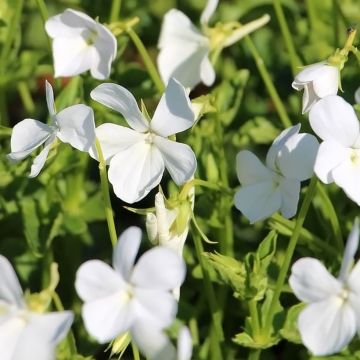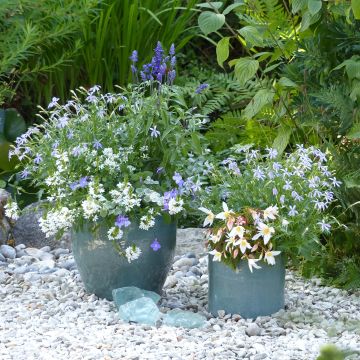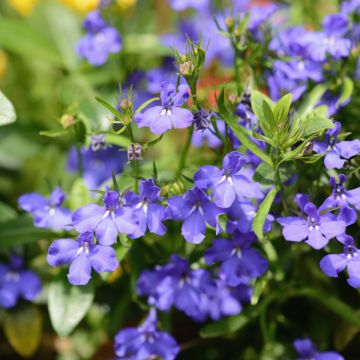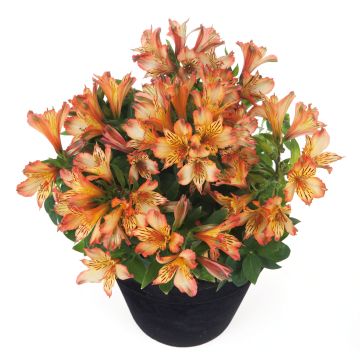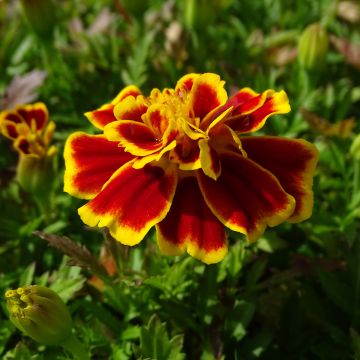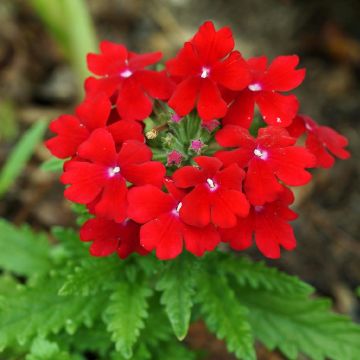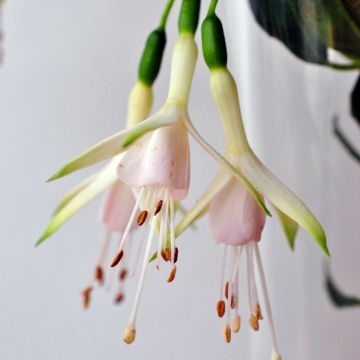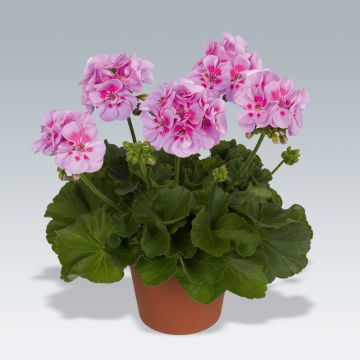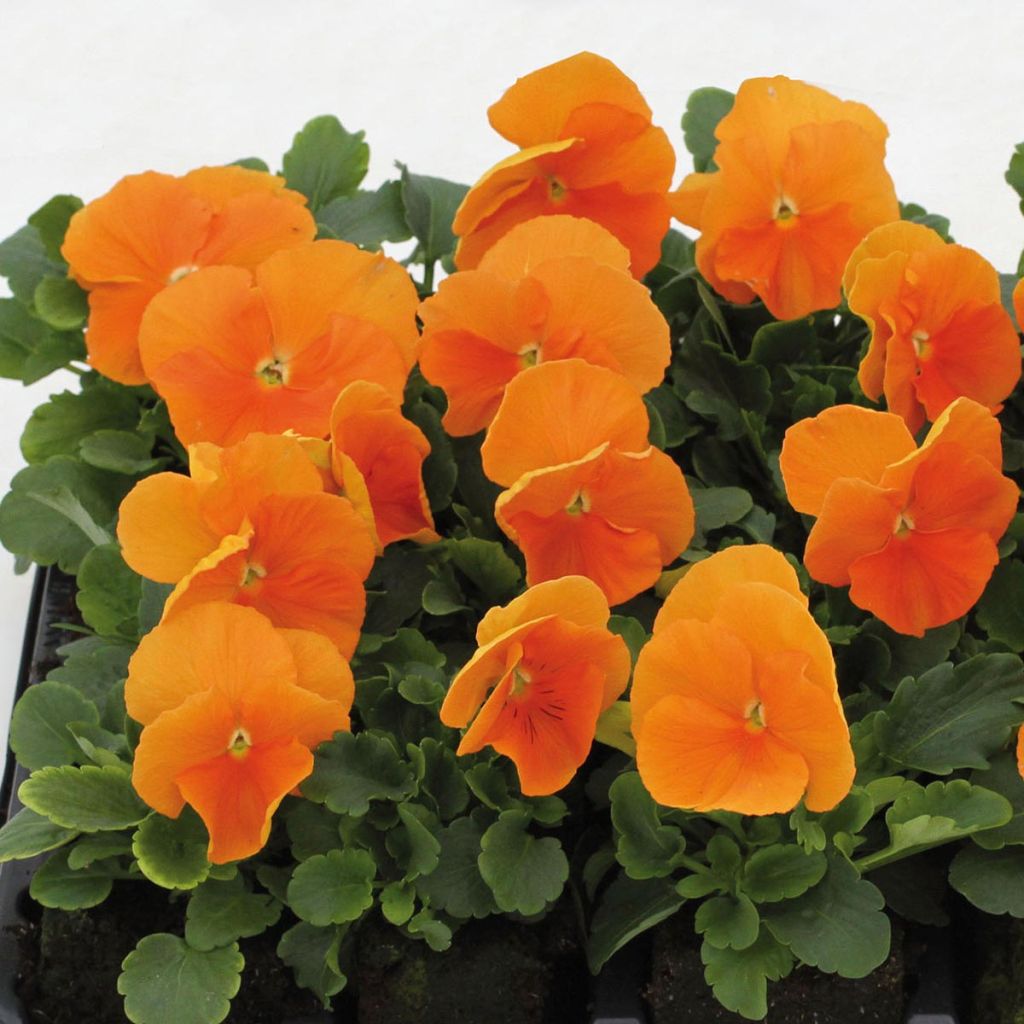

Viola hybrida Matrix F1 Orange Deep - Pansy
Viola hybrida Matrix F1 Orange Deep - Pansy
Viola hybrida Matrix F1 Orange Deep
Pansy
The plants are struggling to grow. I am waiting for a potential blooming, we'll see.
monica, 06/02/2024
This plant carries a 6 months recovery warranty
More information
We guarantee the quality of our plants for a full growing cycle, and will replace at our expense any plant that fails to recover under normal climatic and planting conditions.
From €5.90 for pickup delivery and €6.90 for home delivery
Express home delivery from €8.90.
From €5.90 for pickup delivery and €6.90 for home delivery
Express home delivery from €8.90.
Does this plant fit my garden?
Set up your Plantfit profile →
Description
The Viola x wittrockiana Matrix F1 'Orange Deep' is a medium-sized hybrid pansy, with an abundance of pure to intense orange flowers over a very long period. The plants are compact, free-flowering, cold, disease and heat resistant. This variety takes off very well in spring and does not go to seed with the first heat, which ensures a long flowering season. It is easy to grow in humus-rich and moist soil, in sun or partial shade.
Garden pansies, sometimes called Swiss giant pansies, are actually hybrids grouped in the Viola x wittrockiana group. They belong to the Violaceae family and are most often grown as annuals or biennials, though they are actually short-lived perennials. The Matrix F1 'Orange Deep' variety is a bushy plant that forms compact, slightly spreading clumps, 15 cm (5.9 in) in height and 20 cm (7.9 in) in width. It flowers from late winter to late spring, or from late spring to late summer. The Matrix F1 'Orange Deep' pansies are medium-sized, open, slightly fragrant flowers, which have two shades of orange, more golden on the outside of the petals, darker on the inside, with a tiny yellow heart. The medium green leaves are elliptical and broadly crenated.
In the garden, they are at their best in window boxes, on the windowsill, where you can have them right under your nose whilst keeping them sheltered from the cold. Try combining them with primroses, wallflowers, grape hyacinths, daisies... and even with grasses like Japanese sedge for a graphic, contemporary effect.
Pansy petals are edible, their colours will bring a touch of originality to your salads and pastries. For this, think of growing them as you would grow your own vegetables - as naturally as possible.
Note: Please be aware that our young plant plugs are professional products reserved for experienced gardeners: upon receipt, transplant them as soon as possible, into pots, window boxes or directly into flower beds.
Report an error about the product description
Viola hybrida Matrix F1 Orange Deep - Pansy in pictures
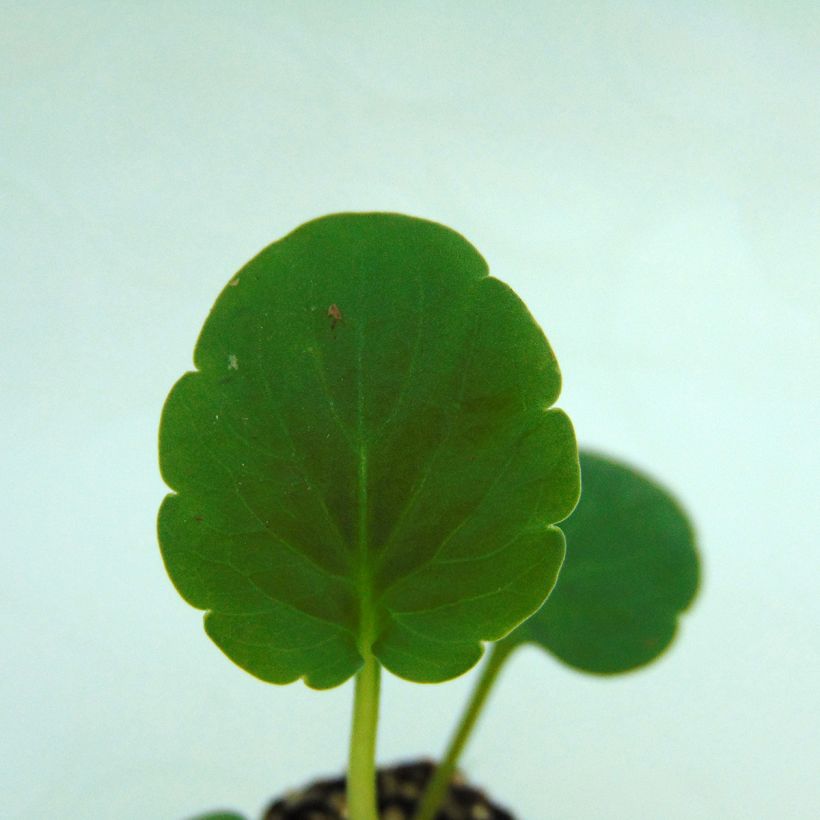

Flowering
Foliage
Plant habit
Botanical data
Viola
hybrida
Matrix F1 Orange Deep
Violaceae
Pansy
Cultivar or hybrid
Other Pansies and violas
Planting and care
Fast-growing with an abundance of flowers, Matrix F1 'Orange Deep' pansies are nutrient-demanding plants, suited to a sunny or semi-shaded position. They thrive in neutral to acidic humus-rich, moist, fertile soil. Feed them with a liquid plant food once or twice a week during the growing season. Water regularly but not excessively. Deadhead regularly to encourage flowering.
Planting period
Intended location
Care
-
, onOrder confirmed
Reply from on Promesse de fleurs
Plug plants - Annuals
Haven't found what you were looking for?
Hardiness is the lowest winter temperature a plant can endure without suffering serious damage or even dying. However, hardiness is affected by location (a sheltered area, such as a patio), protection (winter cover) and soil type (hardiness is improved by well-drained soil).

Photo Sharing Terms & Conditions
In order to encourage gardeners to interact and share their experiences, Promesse de fleurs offers various media enabling content to be uploaded onto its Site - in particular via the ‘Photo sharing’ module.
The User agrees to refrain from:
- Posting any content that is illegal, prejudicial, insulting, racist, inciteful to hatred, revisionist, contrary to public decency, that infringes on privacy or on the privacy rights of third parties, in particular the publicity rights of persons and goods, intellectual property rights, or the right to privacy.
- Submitting content on behalf of a third party;
- Impersonate the identity of a third party and/or publish any personal information about a third party;
In general, the User undertakes to refrain from any unethical behaviour.
All Content (in particular text, comments, files, images, photos, videos, creative works, etc.), which may be subject to property or intellectual property rights, image or other private rights, shall remain the property of the User, subject to the limited rights granted by the terms of the licence granted by Promesse de fleurs as stated below. Users are at liberty to publish or not to publish such Content on the Site, notably via the ‘Photo Sharing’ facility, and accept that this Content shall be made public and freely accessible, notably on the Internet.
Users further acknowledge, undertake to have ,and guarantee that they hold all necessary rights and permissions to publish such material on the Site, in particular with regard to the legislation in force pertaining to any privacy, property, intellectual property, image, or contractual rights, or rights of any other nature. By publishing such Content on the Site, Users acknowledge accepting full liability as publishers of the Content within the meaning of the law, and grant Promesse de fleurs, free of charge, an inclusive, worldwide licence for the said Content for the entire duration of its publication, including all reproduction, representation, up/downloading, displaying, performing, transmission, and storage rights.
Users also grant permission for their name to be linked to the Content and accept that this link may not always be made available.
By engaging in posting material, Users consent to their Content becoming automatically accessible on the Internet, in particular on other sites and/or blogs and/or web pages of the Promesse de fleurs site, including in particular social pages and the Promesse de fleurs catalogue.
Users may secure the removal of entrusted content free of charge by issuing a simple request via our contact form.
The flowering period indicated on our website applies to countries and regions located in USDA zone 8 (France, the United Kingdom, Ireland, the Netherlands, etc.)
It will vary according to where you live:
- In zones 9 to 10 (Italy, Spain, Greece, etc.), flowering will occur about 2 to 4 weeks earlier.
- In zones 6 to 7 (Germany, Poland, Slovenia, and lower mountainous regions), flowering will be delayed by 2 to 3 weeks.
- In zone 5 (Central Europe, Scandinavia), blooming will be delayed by 3 to 5 weeks.
In temperate climates, pruning of spring-flowering shrubs (forsythia, spireas, etc.) should be done just after flowering.
Pruning of summer-flowering shrubs (Indian Lilac, Perovskia, etc.) can be done in winter or spring.
In cold regions as well as with frost-sensitive plants, avoid pruning too early when severe frosts may still occur.
The planting period indicated on our website applies to countries and regions located in USDA zone 8 (France, United Kingdom, Ireland, Netherlands).
It will vary according to where you live:
- In Mediterranean zones (Marseille, Madrid, Milan, etc.), autumn and winter are the best planting periods.
- In continental zones (Strasbourg, Munich, Vienna, etc.), delay planting by 2 to 3 weeks in spring and bring it forward by 2 to 4 weeks in autumn.
- In mountainous regions (the Alps, Pyrenees, Carpathians, etc.), it is best to plant in late spring (May-June) or late summer (August-September).
The harvesting period indicated on our website applies to countries and regions in USDA zone 8 (France, England, Ireland, the Netherlands).
In colder areas (Scandinavia, Poland, Austria...) fruit and vegetable harvests are likely to be delayed by 3-4 weeks.
In warmer areas (Italy, Spain, Greece, etc.), harvesting will probably take place earlier, depending on weather conditions.
The sowing periods indicated on our website apply to countries and regions within USDA Zone 8 (France, UK, Ireland, Netherlands).
In colder areas (Scandinavia, Poland, Austria...), delay any outdoor sowing by 3-4 weeks, or sow under glass.
In warmer climes (Italy, Spain, Greece, etc.), bring outdoor sowing forward by a few weeks.

































